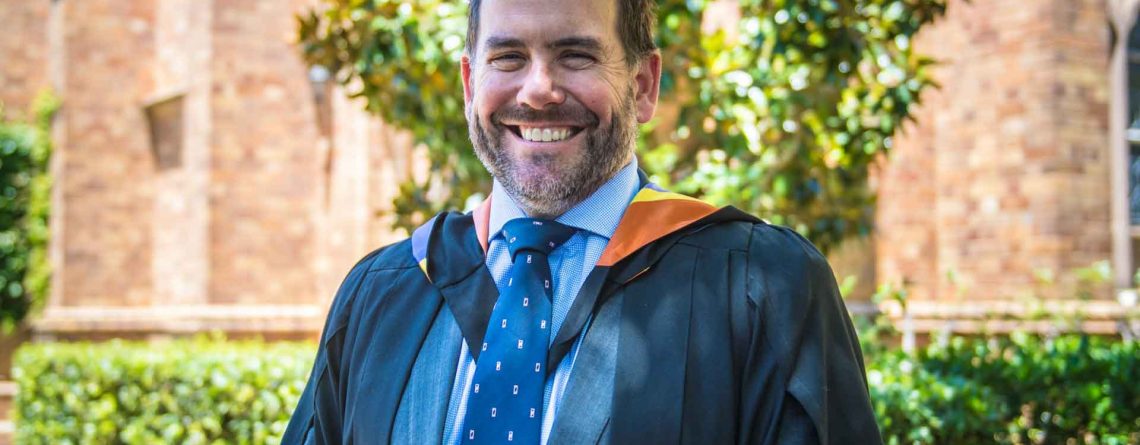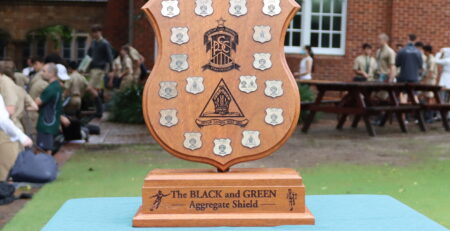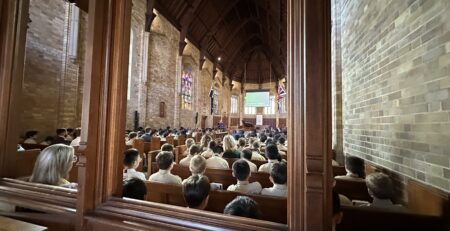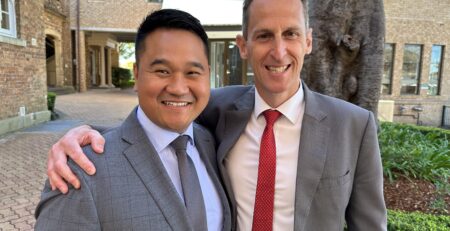The HSC and the IB Diploma at Trinity
At Trinity, students can choose to complete one of two senior credentials: either the Higher School Certificate (HSC) or the International Baccalaureate Diploma (IB Diploma). This dual-credential model in Years 11 and 12 is not always understood, either within or external to our school community. I frequently find that misconceptions and myths circulate amongst students and families across the School. This article is intended to provide some clarity on some of the issues associated with the two credentials.
The first thing to note is that students and their families make the decision about the final credential during the course of Year 10. Decisions about elective subjects up until that point have no bearing at all on which credential the boy chooses to do. Likewise, there is no real value in focussing on the credential decision until the selection process gets underway around the middle of Year 10.
The second thing to note is that the key determinant of a boy’s success in either the HSC or the IB Diploma will be his engagement with his studies. Parents of the Middle and Senior School will be aware of the Engagement Point Average (EPA) which features prominently in Trinity Grammar School reports and discussions about student progress. The Deputy Headmaster – Academic has written at length about the EPA and its importance here. Success will not be determined by the choice of credential; it will be determined by the adoption and maintenance of academic engagement behaviours.
The third point is that different boys will be better suited to different credentials. The HSC has much greater flexibility than the IB Diploma. In the HSC, boys are able to specialise; it is possible to choose a programme of study that is nearly entirely focussed on Mathematics and Science, or on the Humanities, or on the Creative Arts. The IB Diploma does not allow this specialisation. This flexibility is also seen in that the HSC provides more options to accelerate subjects, or to reduce the number of subjects, or to engage in vocational subjects. The IB Diploma requires boys to study a second language, it places a greater weight on the final examinations (compared to school-based assessments), and it includes a major written task.
Much more can and will be said about the differences between the credentials. In Year 10, boys and families will be provided with all the necessary information in an interactive process of considering which path will be best for each student. Senior academic and pastoral staff at the School will ensure that boys and families will be guided through all the considerations at the right time.
The fourth point is that both the HSC and the IB Diploma offer a path to academic success. Both credentials are robust, well-recognised domestically and internationally, and prepare students for tertiary study.
The fifth point is that the School does not play favourites with reference to the credentials. At Trinity, we aim to have all Stage 6 teachers teaching in both credentials; there is no ground for thinking that one credential gets better teachers than the other. There is no disparity in like-for-like class sizes and no favouritism in resourcing. The School does not prioritise one credential or one cohort of students over the other.
I imagine that for many in our community, these claims may raise the question as to why IB Diploma results have been stronger than HSC results in recent years. There are two main reasons. The first has nothing to do with the School, but has to do with how the University Admissions Centre (UAC) calculates the Australian Tertiary Admissions Rank (ATAR) for the HSC and the IB Admissions Score (IBAS) for all IB Diploma Students in NSW.
The second issue, however, is a Trinity-specific issue. Over the decades that Trinity has offered the IB Diploma, the number of students choosing this credential has increased, with more than half of the Year 12 cohort taking this option. Broadly speaking, most of our high-ability and many of our mid-range students (according to their Year 10 results) are choosing to do the IB Diploma. These academically strong students are the ones who, if they were doing the HSC, would be achieving Band 6 results and being selected for showcase events. Any school that removed more than one hundred of its strongest students from the HSC would see a significant downturn of its average results in that credential. The distribution of academic ability within the two candidatures is the primary cause of the current trends in Year 12 results.
I hasten to add that the HSC is a pathway whereby high-ability boys can and do achieve very strong results. It is also the case that boys who step up in their academic engagement exceed the results that might be expected, whichever pathway they are undertaking.
The School continues to be committed to offering two credentials, to resourcing both credentials equitably, and to supporting boys in their studies, regardless of the credential that they pursue. In the final analysis, the key issue is the active engagement of the boys in their learning, because this will lead to success both in the credential and in the years to come.
Tim Bowden | Headmaster
















